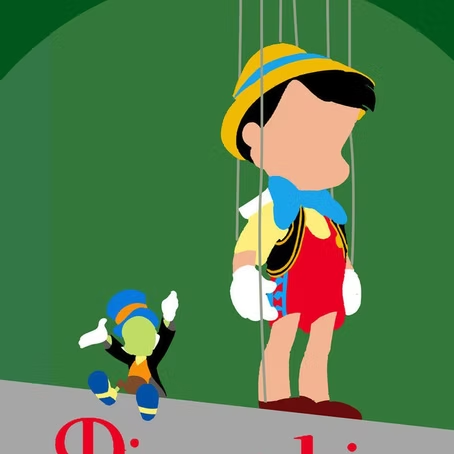Luca* first came to the UAE in the summer of 2015.
Her distant relatives all but disappeared the day she arrived, having made false promises to help her before she came.
Because of this, Luca had to work her way from the bottom to the top, navigating her way through the “concrete jungle where dreams are made” of the Middle East.
She was lucky in that she found a job before her 3-month visit visa expired, but she was far less lucky in the 2 years that followed.
When her contract expired, she halfheartedly agreed to renew for another 2 years, only to be disappointed that she received neither a well-deserved promotion nor a salary raise.
It was then she decided to email job applications to several companies, until finally, she was shortlisted, interviewed, and offered a job.
Right where we began 4 months ago.
Less than a week after submitting her resignation letter (with much satisfaction), Luca called to let me know that she was being investigated for committing a major misconduct in her company.
Never the sweet sugarcoating friend, I confronted her — of course after the prelude of comforting her and promising to pray for her — if the accusation was indeed true.
“Yes and no,” was her reply.
Mind you, Luca is not that kind of person.
I think it’s easy to assume that she is at this this point, but life in the UAE is not nearly as clear-cut and black and white.
It’s easy to pass judgment on a stranger until you get to know the person, and I’ve known her for almost as long as I’ve lived in this country.
Yes, she did something wrong, but no, she is not a bad person.
As a mark of good faith, Luca openly admitted her mistake and submitted an apology letter to the management.
She thought that she’d dodged a bullet, but her managers were just flexing their muscles.
Following her honest confession, she was told not to report for work until her visa cancellation was completed
— Except that her company did not even lift a finger to begin the process.
After a month dragged on, she was called back to the headquarters and given an ultimatum: she had to give up her right to a final separation pay or her visa would not be cancelled.
She had already accumulated some debts from her friends in her weeks of unemployment and wanted nothing more than to start working for her new company, so she made the difficult choice of giving her managers what they wanted.
It proved to be another trap, as 2 more weeks dragged on, and her visa showed no signs of being cancelled.
And still another problem presented itself: Luca’s old managers contacted her new company and gave a full (and plausibly exaggerated) report of her misconduct.
Her new company’s HR called to let her know they had half a mind to withdraw the 2-month-old job offer, leaving her where she is now.
Jobless, nearly penniless, locked up in her tiny rented room all day, not eating, not sleeping…
I listen to Luca’s plight and I think, “Where’s justice?”
She may not be the first person to suffer under the hands of her employer (her story is far more common than people care to realize), but Luca certainly suffered more than she deserved.
I was raised to believe that good people received good things and bad people received bad things.

Thank you, Fairy Godmother
In Luca’s case, it seemed like the trouble all started when she decided to be honest.
Which is what makes me so angry.
You don’t take a decent person and screw her up like that.
Maybe I am naïve for holding on to my childish belief that “good begets good; evil begets evil.”
But at the end of it all, I will still choose honesty.
Here’s why:
1. Honesty is easy.

I think lying is a skill we’re all better off not learning.
I also think that even compulsive liars still take a few seconds to come up with a lie.
Telling the truth, on the other hand, once you make up your mind to come clean, is comparatively easy.
It doesn’t take skill, it doesn’t take talent, and it doesn’t take imagination.
You just tell it like it is, plain and simple.
Perhaps the difficult part only comes with accepting the consequences, but the consequences still come only after the act of telling the truth.
2. “The truth will set you free.”

There must be something in the old cliché which gives it such an enduring power.
Could it be that it speaks the truth? (No pun intended)
To people like Luca, it may not seem like she is free (certainly not from her old company), but she is free where liars in far better situations than her are not: her conscience.
And isn’t that where it counts the most?
To be free within your self?
How many millions of people today are willing to spend a fortune to reconcile with their own selves?
How many people care to admit that?
3. Honesty invites honesty invites trust.

The people who ask honesty from other people far outnumber the people who actually practice honesty.
That’s probably because the world today worships success, regardless whether you pulled a Machiavelli stunt to get there.
On a more immediate level, let’s talk about relationships.
Any self-respecting man or woman would want an honest man or woman to be in a relationship with, especially a long-term romantic relationship, but one cannot expect something which one does not give.
We reap what we sow.
4. Honesty is always right.

It takes a conscious decision to tell the truth or a lie (or even a half-truth which can be very tempting at times).
When you make a difficult decision, wouldn’t it be logical to make the right decision?
Choosing honesty is precisely that, the right, once-and-for-all decision.
Again, it’s a question of facing the consequences, but you made that decision a long time ago.
You made that mistake.
Don’t make another one.
I wish I can end this blog by telling you that everything turned out all right for Luca in the end, but it’s still too soon to say that.
She didn’t reach “the end” yet.
All we know is that right now, she is suffering, and so is her widowed mother back home who is sick and barely able to afford medication without her daughter’s monthly financial support.
Unsurprisingly, there are days when Luca regrets her decision.
She could have saved herself and her mother a great deal of pain, if she’d but lied.
But she could not bring herself to do it.
A part of her was holding her back, even as another voice was egging her on to “save” herself.
She tried to conjure up a hundred different versions of what happened, but the easiest one to tell was still the truth.
The truth freed her from what might have been a lifelong struggle; no matter how far she climbed the career ladder, her guilt would always have pulled her back down.
She thought that by being honest with her old company, they too would be honest about their intentions.
They weren’t.
Instead, they took advantage of her apparent weakness and not only cheated her off of her final pay but also jeopardized her chances with her new company.
Update:
It gives me a tremendous amount of pleasure to finally be able to publish this blog.
When I first began writing this over a month ago, Luca specifically asked me not to publish it without a proper ending.
Today, Luca is slowly getting back on her own two feet.
She had just started working in her new company 3 days ago, and far from being jaded, she is positively burning with passion and ambition.
Luca’s story is a rare but shining example that good triumphs over evil.
I am genuinely happy for how things turned out in the end for my friend; still, if it had ended any other way, I would not change my stance on honesty.
The trouble with honesty is that it is very easily confused with vulnerability, and vulnerability invites being preyed upon in a dog-eat-dog world.
Still, that doesn’t mean honesty is wrong.
Because if we can all just be honest with ourselves, telling the truth is always the right thing to do.



